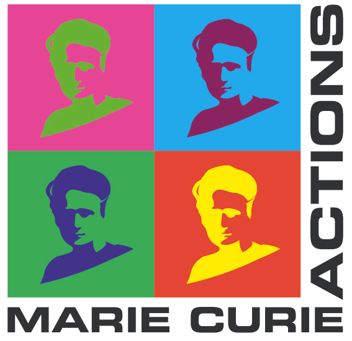"PRENET" is the acronym of the research programme "Raw Material Selectivity and Social Networking in Early Prehistoric Mediterranean Seascapes". It is a two-year (2015 – 2017) Marie Skłodowska-Curie Individual Fellowship (H2020-MSCA-IF) project (Grant No. 656148) funded by the European Union under its Horizon2020 framework. It is hosted at the Archaeological Research Unit of the University of Cyprus. The Experienced Researcher is Dr Theodora Moutsiou and the Project Coordinator is Professor Vasiliki Kassianidou. The research programme investigates the extent and directions of social communication in the early prehistory of the Eastern Mediterranean seascape, with a particular focus on the island of Cyprus, and the cognitive/behavioural factors behind the observed patterns. The research methodology employed is interdisciplinary and makes use of traditional archaeological methods, such as archival research and the examination of museum collections, combined with technologically advanced methods, such as pXRF (HH portable X-ray Fluorescence Spectroscopy)and GIS (Geographic Information Systems).

The specific scientific objectives of the research programme are the following:
• Research Objective 1: the investigation of social interactions in prehistoric Eastern Mediterranean by examining raw material movement in pre- and early Neolithic Cyprus
The first objective of the proposed research is the investigation of the extent and direction of social interactions in eastern Mediterranean by looking at raw material movement in early prehistoric Cyprus. The Mediterranean is traditionally seen as a barrier to colonization and communication among people with presumably limited cognitive skills. Recent research is radically challenging this view and, with new evidence coming to light, the early human presence on the island is increasingly pushed back. These discoveries have wider-ranging implications throughout the eastern Mediterranean, regarding the social skills of the humans involved in raw material movement.
The first objective of the proposed research is the investigation of the extent and direction of social interactions in eastern Mediterranean by looking at raw material movement in early prehistoric Cyprus. The Mediterranean is traditionally seen as a barrier to colonization and communication among people with presumably limited cognitive skills. Recent research is radically challenging this view and, with new evidence coming to light, the early human presence on the island is increasingly pushed back. These discoveries have wider-ranging implications throughout the eastern Mediterranean, regarding the social skills of the humans involved in raw material movement.
• Research Objective 2: the determination of cognitive/behavioural elements behind our ancestors' choices of specific raw materials through the study of raw material selectivity
The second objective of this research is the establishment of the cognitive and behavioural factors that influenced the selection of specific raw materials over others. The notion of choice has been largely neglected in prehistory until very recently, when few researchers have attempted to discuss the notion in terms of raw material use. This proposal aims at identifying whether the raw materials present in the analysed assemblages were chosen for their symbolic connotations, or whether the choice was based on aesthetic or other criteria. Particular emphasis will be placed on exotic raw materials, whose physical characteristics will be instrumental in elucidating the cognitive/behavioural factors that influenced their choice over local resources.
The second objective of this research is the establishment of the cognitive and behavioural factors that influenced the selection of specific raw materials over others. The notion of choice has been largely neglected in prehistory until very recently, when few researchers have attempted to discuss the notion in terms of raw material use. This proposal aims at identifying whether the raw materials present in the analysed assemblages were chosen for their symbolic connotations, or whether the choice was based on aesthetic or other criteria. Particular emphasis will be placed on exotic raw materials, whose physical characteristics will be instrumental in elucidating the cognitive/behavioural factors that influenced their choice over local resources.

PRENET is funded from the Research and Innovation Programme (Marie Skłodowska-Curie Actions) of the European Union's Horizon2020 Framework Programme under REA grant agreement no. 656148.

